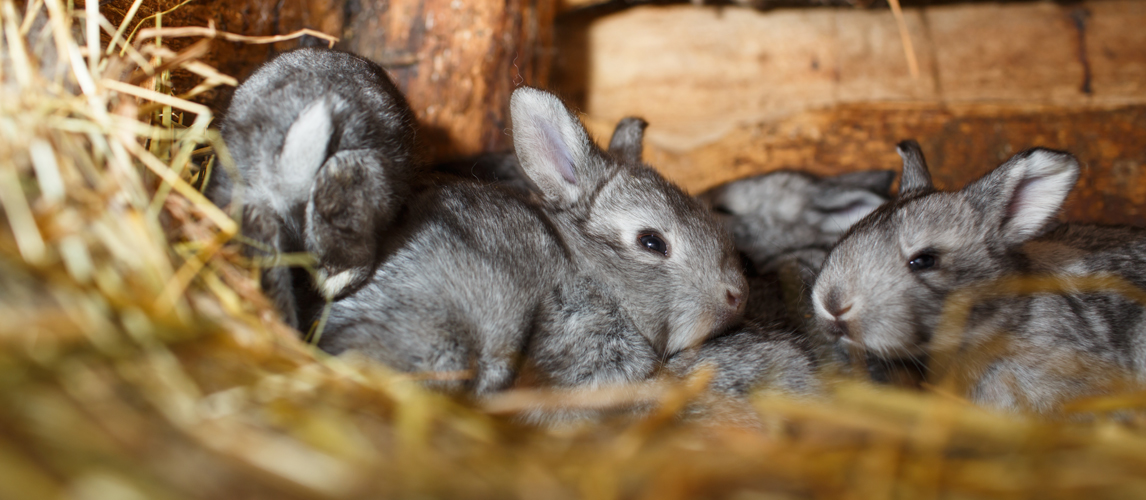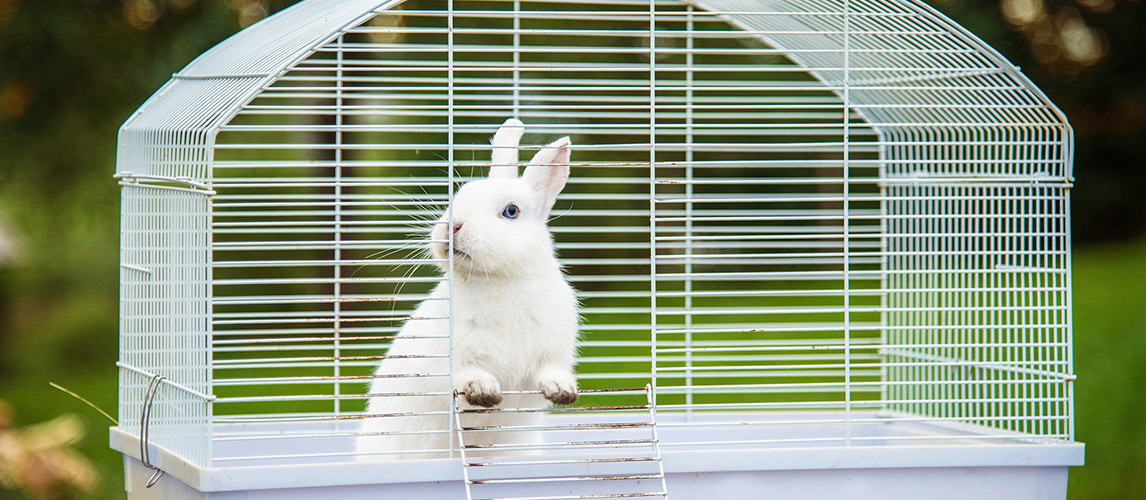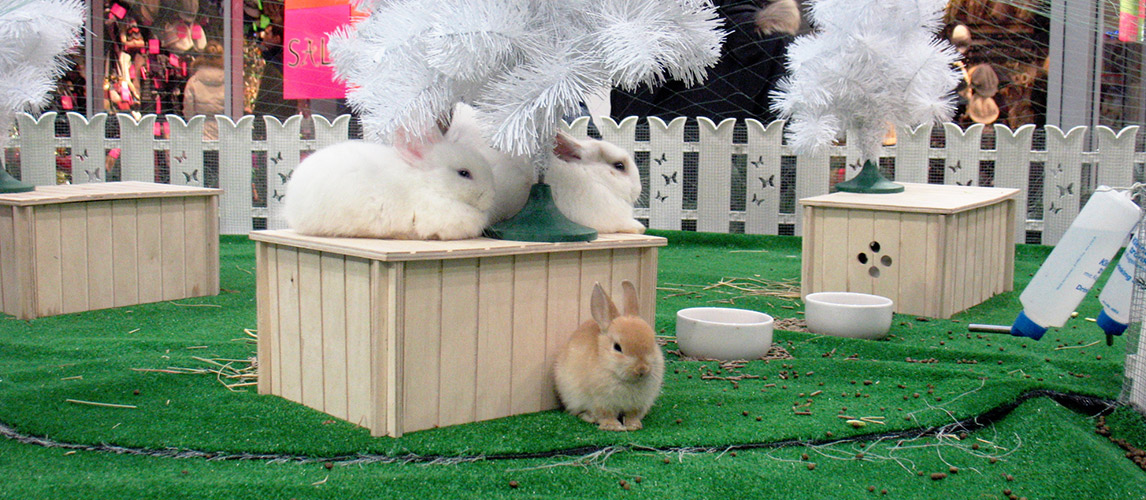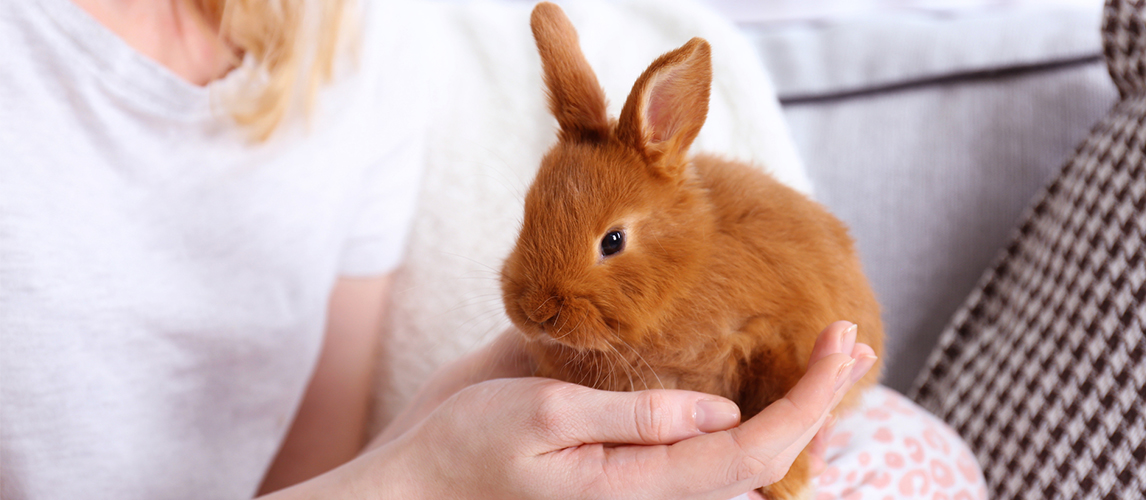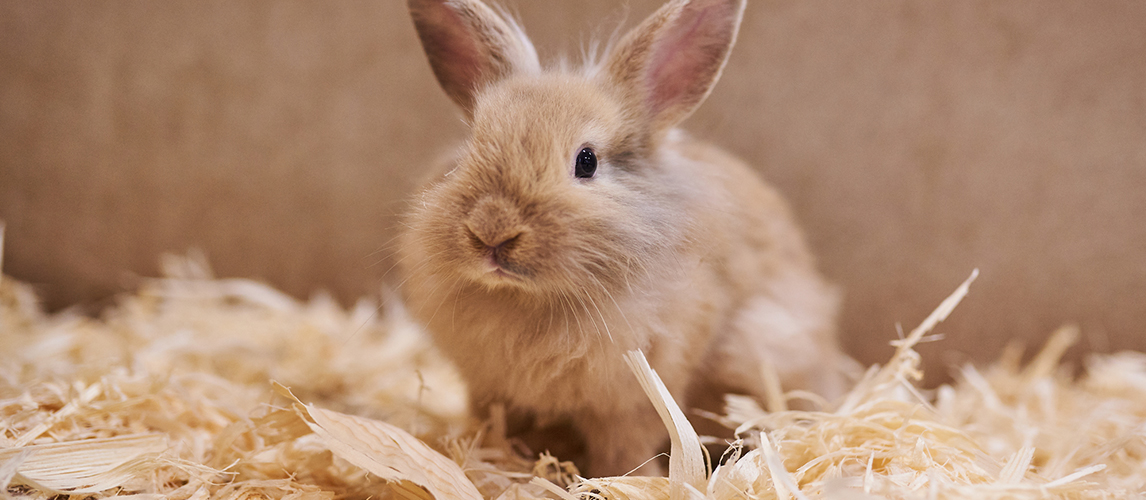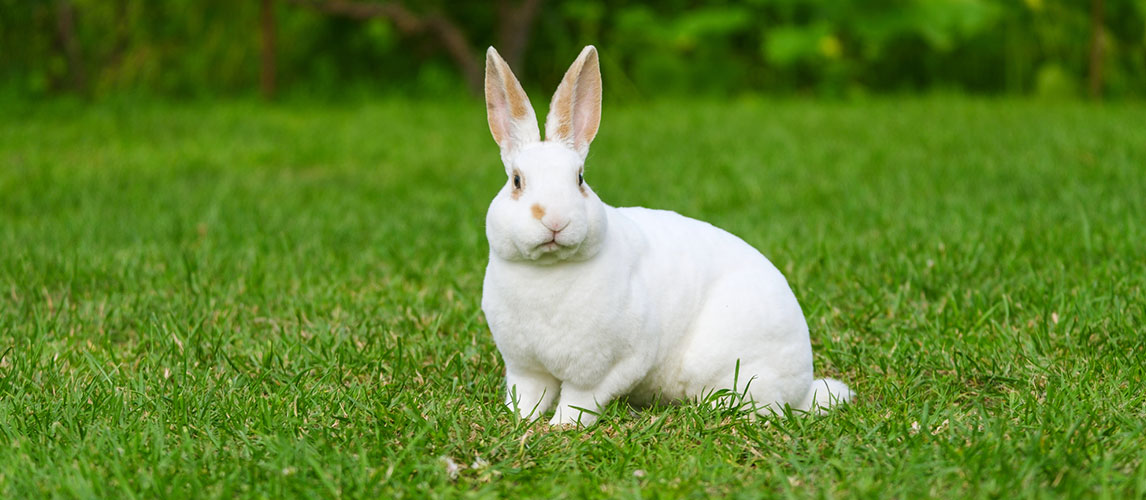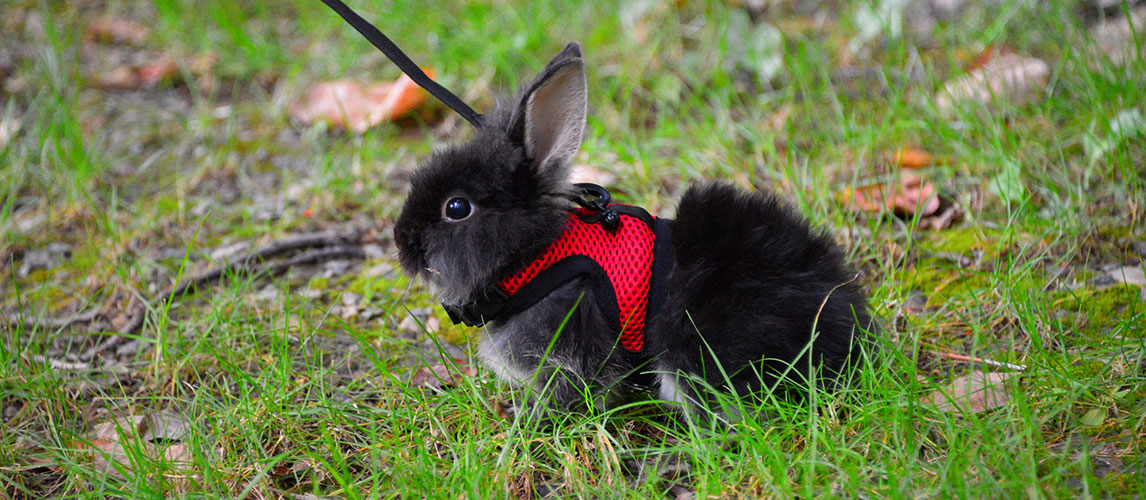So, you get your lovely female rabbit home from the pet store and all seems well until she starts to look a little larger than expected. Then she starts to behave in a strange way. Could this be a rabbit pregnancy? Female rabbits can start to breed at such a young age and rabbits are such prolific breeders that it is not unusual for young rabbits to arrive at their new homes already pregnant.
This can be stressful for their new owners who have no idea about how to care for a pregnant rabbit or how to tell if their rabbit is pregnant! If this has just happened to you, don’t panic because we have you covered! We have first hand experience of breeding rabbits and have researched the latest expert advice so that you can get all the information you need right here.
Baby rabbits are called kits and are the cutest things you can imagine but the process of bringing them into the world can be a little stressful. Read on to find out everything that you need to know about rabbit pregnancy.
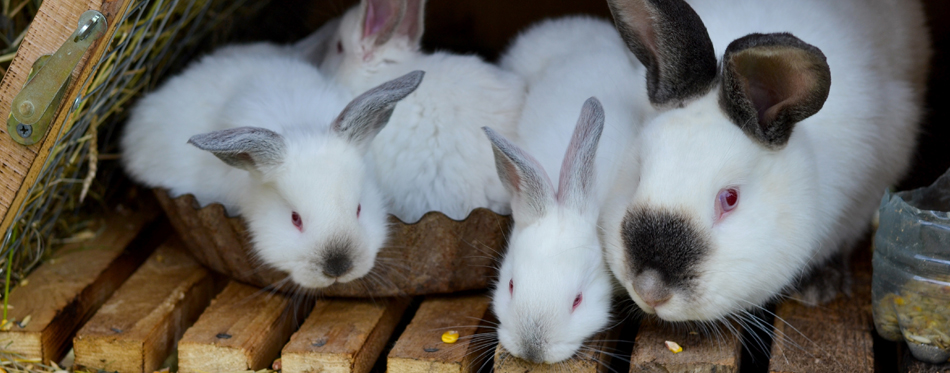
When Can a Rabbit Become Pregnant?
A female rabbit can become pregnant as soon as she reaches sexual maturity. For average sized breed rabbits, this is at around four to six months of age. However, for giant breeds it will be more like six to nine months and for the smallest breeds it can be as young as three and a half months.
Once your rabbits are sexually mature, you cannot keep males and females in the same rabbit cage without there being a very high probability of a pregnancy! The other important thing to remember is that a female rabbit can become pregnant again as soon as she gives birth. The usual advice is to separate males and females once they reach 12 weeks old.
Female rabbits are receptive to mating for 14 out of every 16 days. So, if you are trying to breed rabbits and do not have success the first time you introduce her to the male rabbit, try again a few days later. Also, always bring the female to the male’s cage as females are very territorial and are more likely to attack him if he is introduced into her cage.
When rabbits mate successfully, the male rabbit flips over afterward in a very distinctive way and our own rabbit thumps his feet a few times too! There can be at least 10 minutes of chasing each other around before this happens.
How Long are Bunnies Pregnant For?
The rabbit gestation period (the time between mating and giving birth) is around 31 to 33 days. In general, a doe that is expecting a small litter (which is four or less baby rabbits) will be pregnant for longer than a doe that is expecting a large litter.
Pregnant rabbits should have given birth by day 33. If they have not, a rabbit savvy vet may be able to induce labor for you. After day 34, it is usual for all the kits to be stillborn. Sometimes, a pregnant doe will not actually abort the kits and her body will absorb them instead. This can be due to nutritional deficiencies.
False Pregnancy
Rabbits can suffer from a phenomenon called false pregnancy. The scientific word for this is pseudopregnancy. Female rabbits produce eggs (ovulate) in response to mating and this is why they are so good at getting pregnant! However, they sometimes ovulate after being mounted by another female so you are more likely to encounter it if you keep two females together in the same cage. However it can also occur if you just have one doe. It is also more likely to happen if a male is somewhere close by.
If your pet rabbit is having a false pregnancy, you may notice that she is nest building by pulling out her fur. False pregnancies usually only last between 15 and 18 days and during this time the doe may be very territorial and dig excessively. It can lead to some problems with the uterus and even mastitis in some animals. False pregnancies (sometimes called phantom pregnancies) are very rare in wild rabbits.
What are the Signs of a Pregnant Rabbit?
Whether your breeding was planned or accidental, you need to know how to tell if rabbit is pregnant so that you can make the appropriate preparations.
Early on in the rabbit pregnancy, you will not be able to tell if she’s pregnant but later on there will be some changes in the doe that will indicate that she is a pregnant rabbit! Here are some of the main signs that your rabbit is pregnant.
- Personality changes: Do you have a doe that is usually very chilled and easy-going but has become a bit cranky? Pregnant rabbits can be aggressive and can refuse to be petted as they did before. This can start just a few days after the doe gets pregnant.
- Digging: A mother rabbit may start to dig furiously when she is a couple of weeks pregnant. This is a type of nesting behavior. In the wild, most rabbits would dig a burrow in which to build their nest for their babies.
- Abdominal changes: If you are experienced in handling rabbits, you could gently feel the abdomen of the mother rabbit to detect a rabbit pregnancy. In a pregnant rabbit, you will be able to feel small lumps around the size of a grape. You can only feel these once the doe is at least 10 days pregnant. The doe’s weight may increase but it is very hard to tell this. Towards the end of her pregnancy, you may be able to see the babies kicking.
- Nest building/nesting behavior: Towards the end of the pregnancy, the female starts to make a nest for the babies from her own fur. She often starts by making a round nest in the straw in the nest box. She may not pull out her fur until the very last day.
How to Take Care of a Pregnant Rabbit
A rabbit pregnancy will progress without you having to do very much at all! If there are any male rabbits in the cage, remove them. A boy rabbit could cause the pregnant rabbit stress and get her pregnant immediately with a second litter right after the first.
She will need a nesting box that is large enough for her to get into but very large nest boxes are off-putting so don’t get carried away. She also needs some materials to make a nest for the baby rabbits so supply plenty of bedding hay or straw.
During her pregnancy she will need more food than usual as her body is also feeding the babies. As well as her usual nuggets, green vegetables and hay, mix in some alfalfa hay. Alfalfa hay is higher in calcium and protein than regular rabbit hay which is good for the mother rabbit and the growing babies.
At this time, your rabbit needs as little stress as possible. So, keep the environment calm and handle her as little as possible.
How Do I Help a Rabbit in Labor?
When a pregnant rabbit gives birth it is called kindling. You are unlikely to see any pregnant rabbit labor signs because she gives birth in the early hours of the morning. They do it by instinct and do not need your help.
The feeding takes place twice a day and the rest of the time she will sit away from the nest. If this is her first litter, sadly she can become confused and abandon them. You could try syringe feeding the kits but this is not often successful.
Do Rabbits Give Birth to all Babies at Once?
Rabbit litters contain between one and fourteen kits. Usually, they are all born at the same time and it takes about 15 minutes. However, there are some reports of rabbits giving birth to a litter over a couple of days.
Rabbits have a lot of kits because sadly all the babies are unlikely to survive.
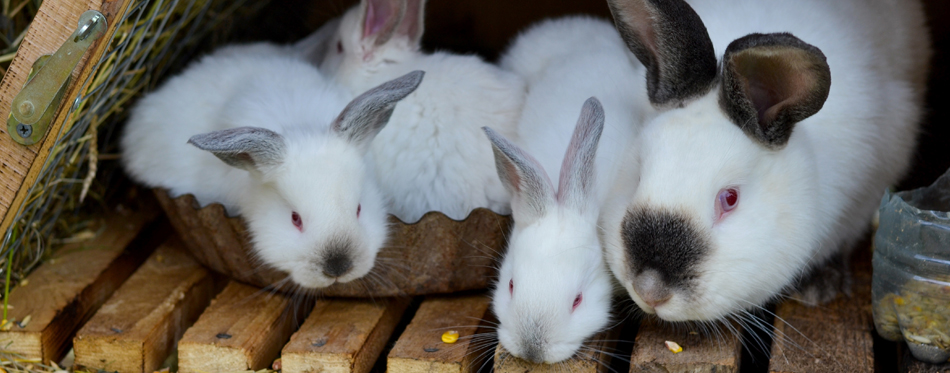
Straight After Your Female Bunny Giving Birth
Baby bunnies are usually born in the night. It’s not actually that easy to tell when your rabbit has given birth! She will have created a nest from fur and it is hard to see if there are any babies in it without disturbing them. The female rabbit covers the baby bunnies with fur and hides them.
Often, the first thing you notice is that the fur appears to be twitching a little. That is the babies throwing themselves around! The mother rabbits stays away from the nest as much as possible and feeding only takes place around twice a day. Rabbits are a prey animal which means that they have adapted to hide from predators. They do not want to a lead a predator to the nest and so they stay away from it as much as they can once they give birth.
Caring for Baby Bunnies
Newborn rabbits are completely helpless – blind and with no fur. They look a bit like tiny hippos. They need their mother’s milk to help them grow until they are fully weaned at around six weeks old.
Like many small mammals, they have large litters and not all the kits will make it. Sadly, there are occasions when the mother rabbit died too. Often, the best thing that you can do is to let the mother rabbit get on with it. However, you do need to be careful with her diet and environment. You also need to know what to do if you need to step in and help. But don’t worry! We have a comprehensive article on How to take care of a baby bunny that will help you out.
Conclusion
Starting off with one rabbit and then finding out that you have several can be stressful as well as exciting. On the other hand, if you have two rabbits and are planning on a pregnancy and baby rabbits – things do not always go according to plan.
On the whole, rabbits are animals that cope with pregnancy and birth by themselves. Just make sure that the doe has everything that she needs and is kept in a calm environment. That includes removing the intact male if he is still around. You only have a month or so to wait to see the baby bunnies!
Again, in the early days following the birth it is best to leave them alone or it could upset the doe. In a fortnight or so they will be climbing out of the nest and coming out to say hello to their new family!
Sources:
- Pseudopregnancy, Science Direct
- Breeding and Reproduction of Rabbits, MSD Veterinary ManualRabbit

